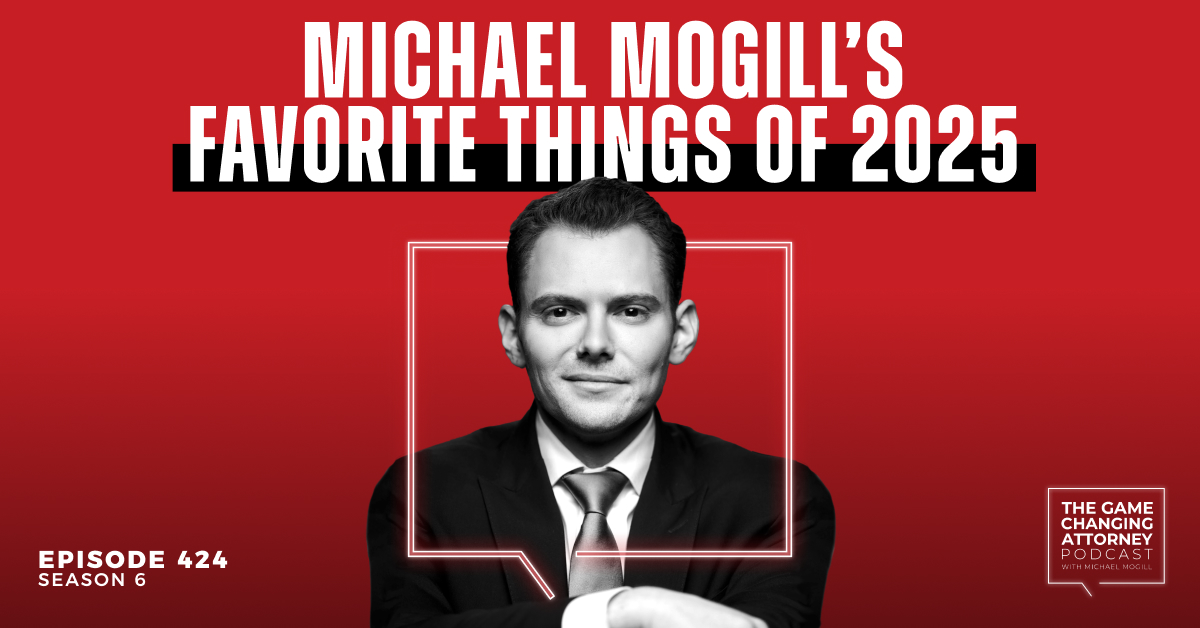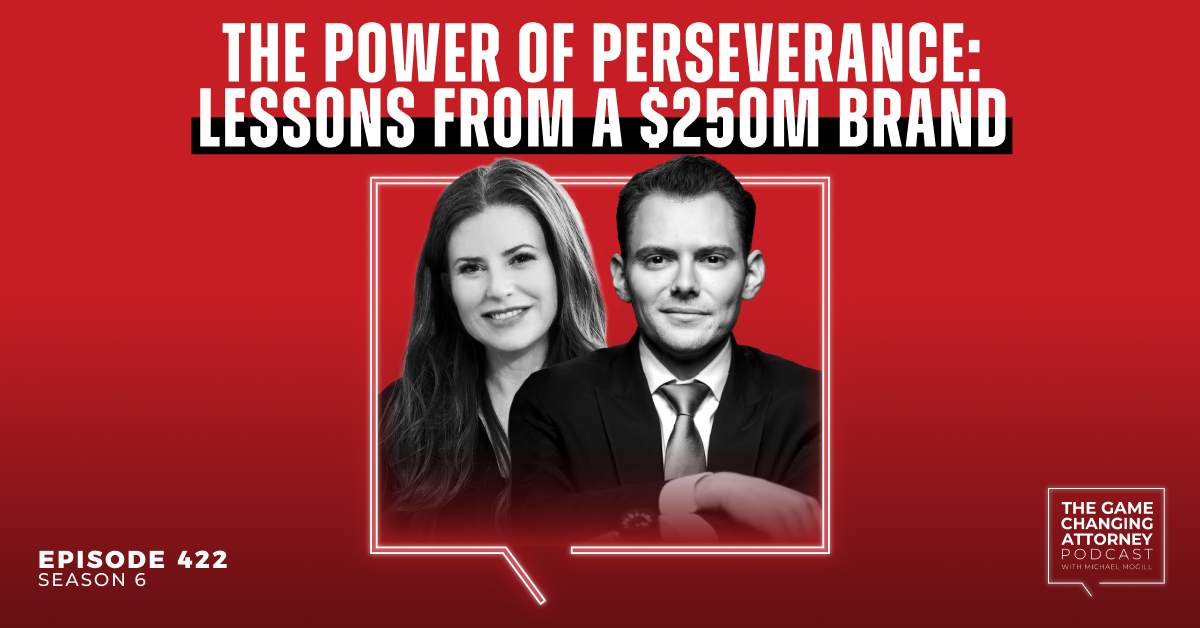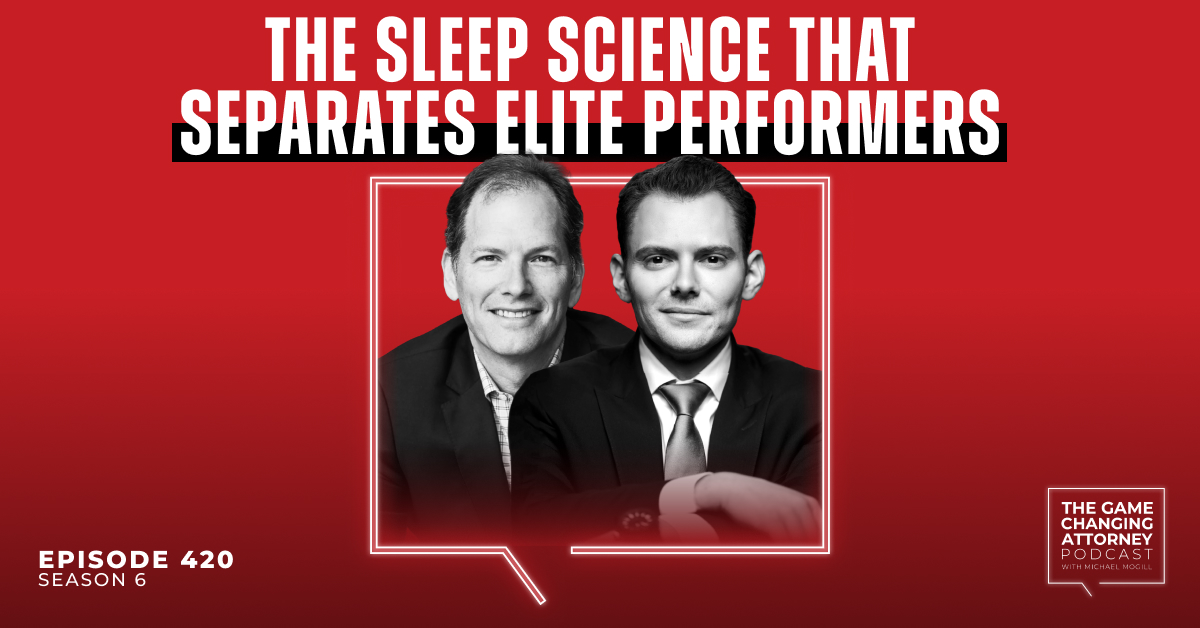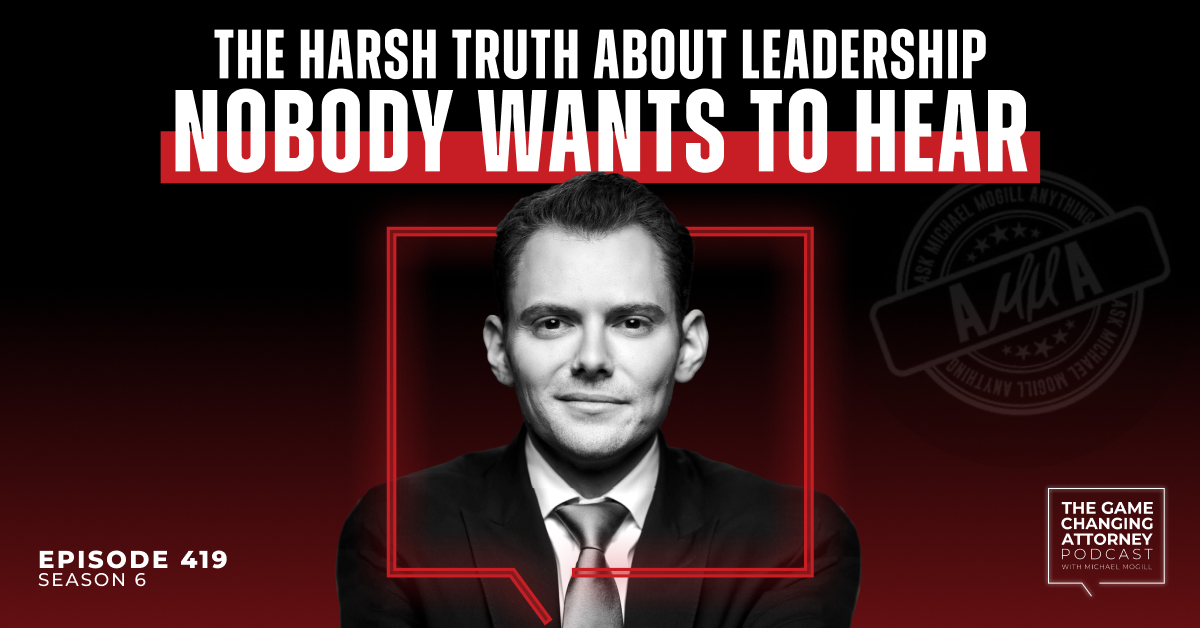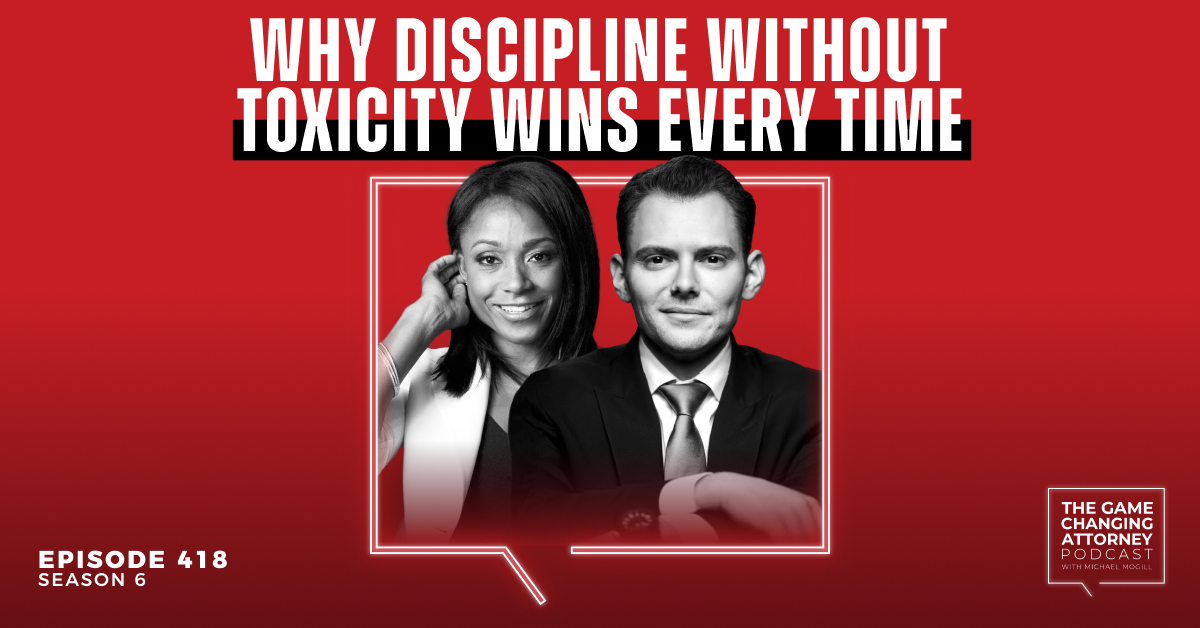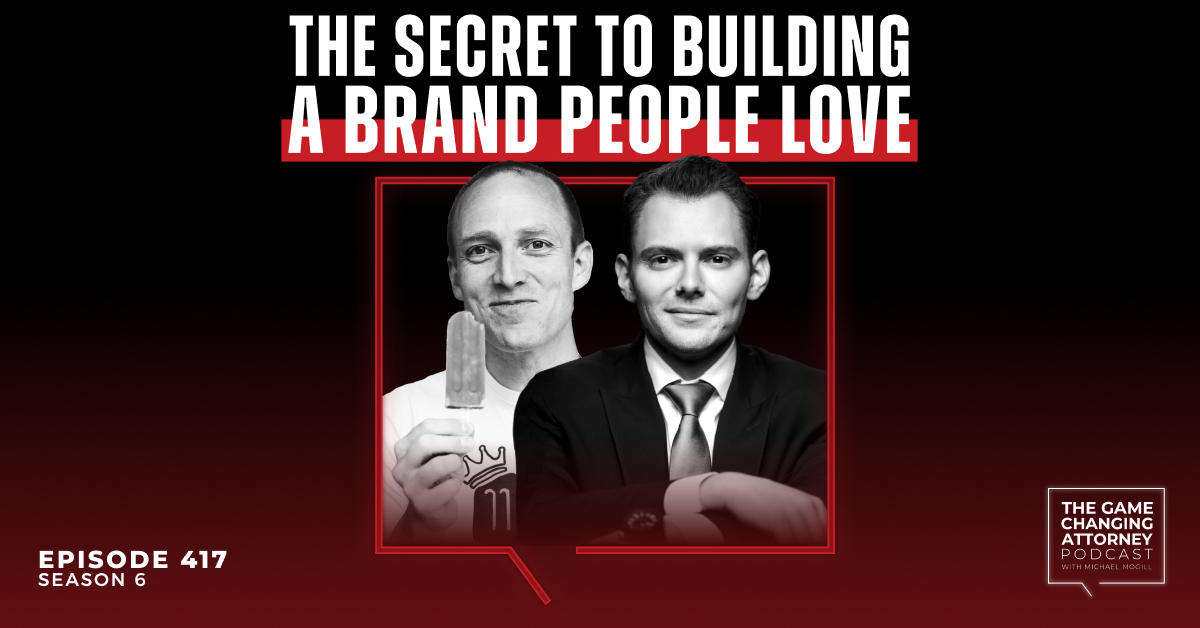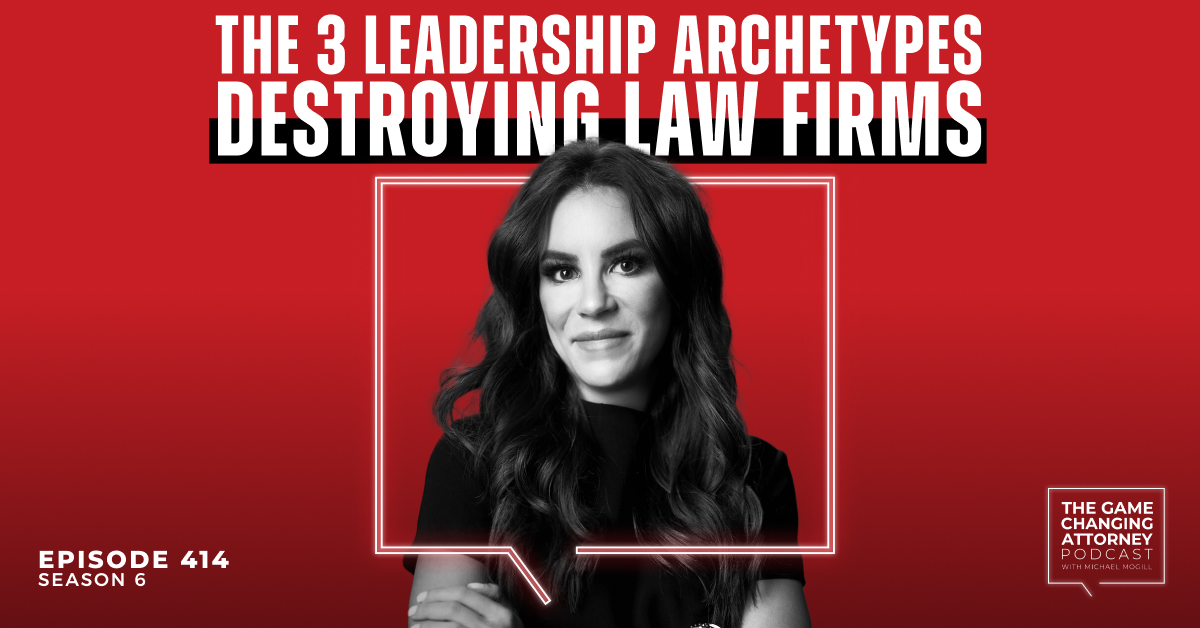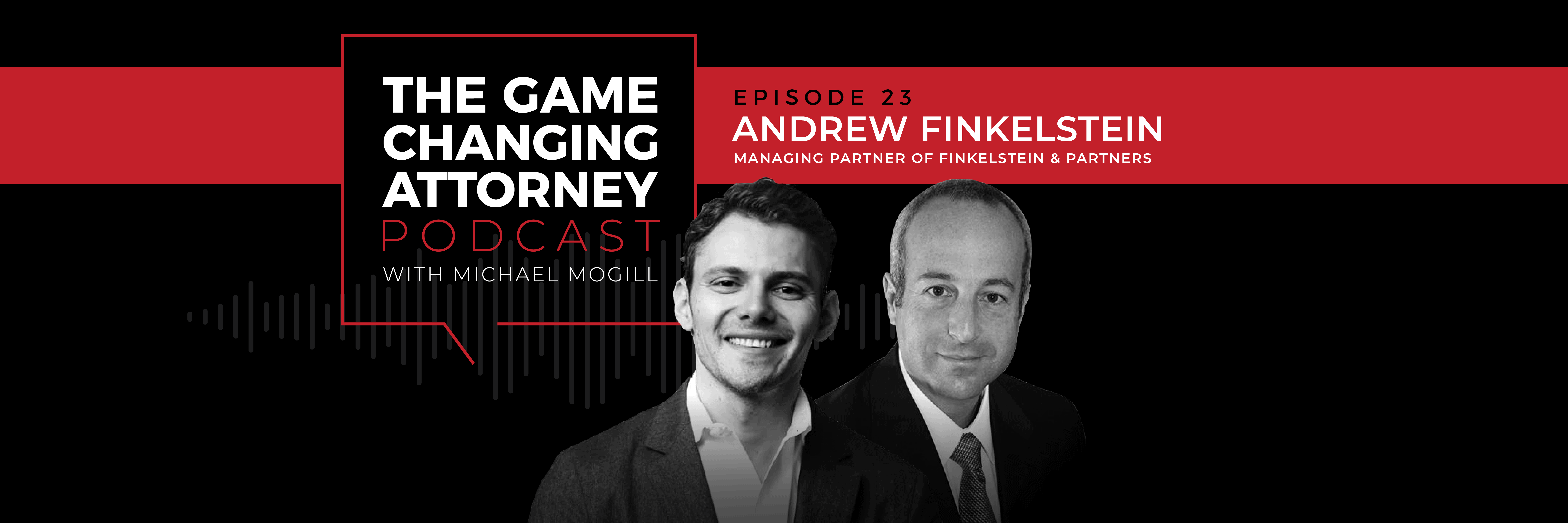
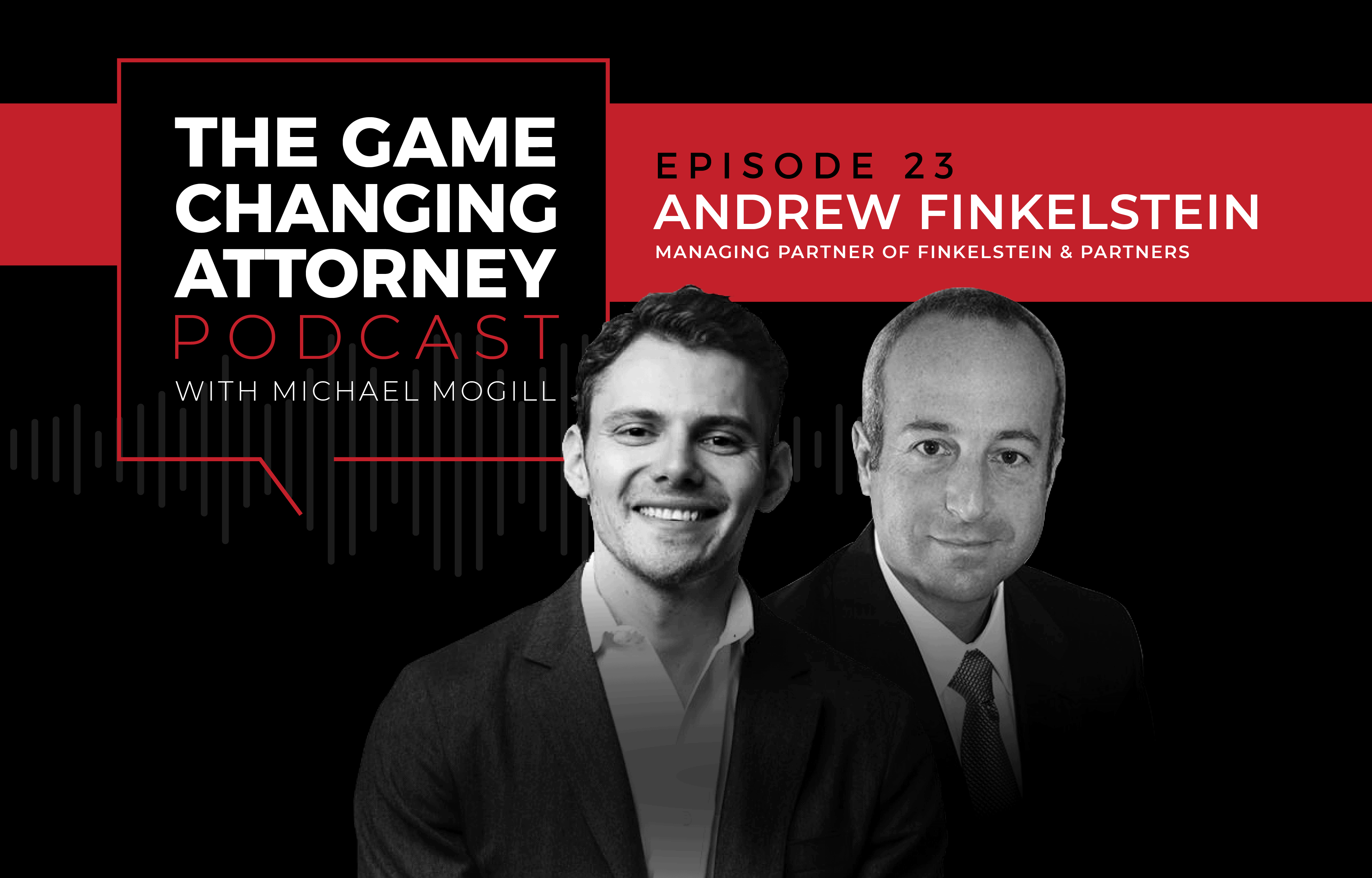
EPISODE 23 — Andrew Finkelstein — Building the Law Firm of the Future
Andrew Finkelstein is Managing Partner of Finkelstein & Partners, renowned consumer activist, and accomplished litigator — and he’s made a name for himself bringing together the practice and business of law.
In this episode of The Game Changing Attorney Podcast, he joins us to share the top lessons he’s learned in his decades of industry experience, answering vital questions including:
- How do law, business, tech, and consumer advocacy go hand in hand?
- Can you detect toxic company culture before going into business with a firm?
- Why are the busiest people oftentimes the worst procrastinators?
- Are client surveys really still relevant for the law firm of the future?
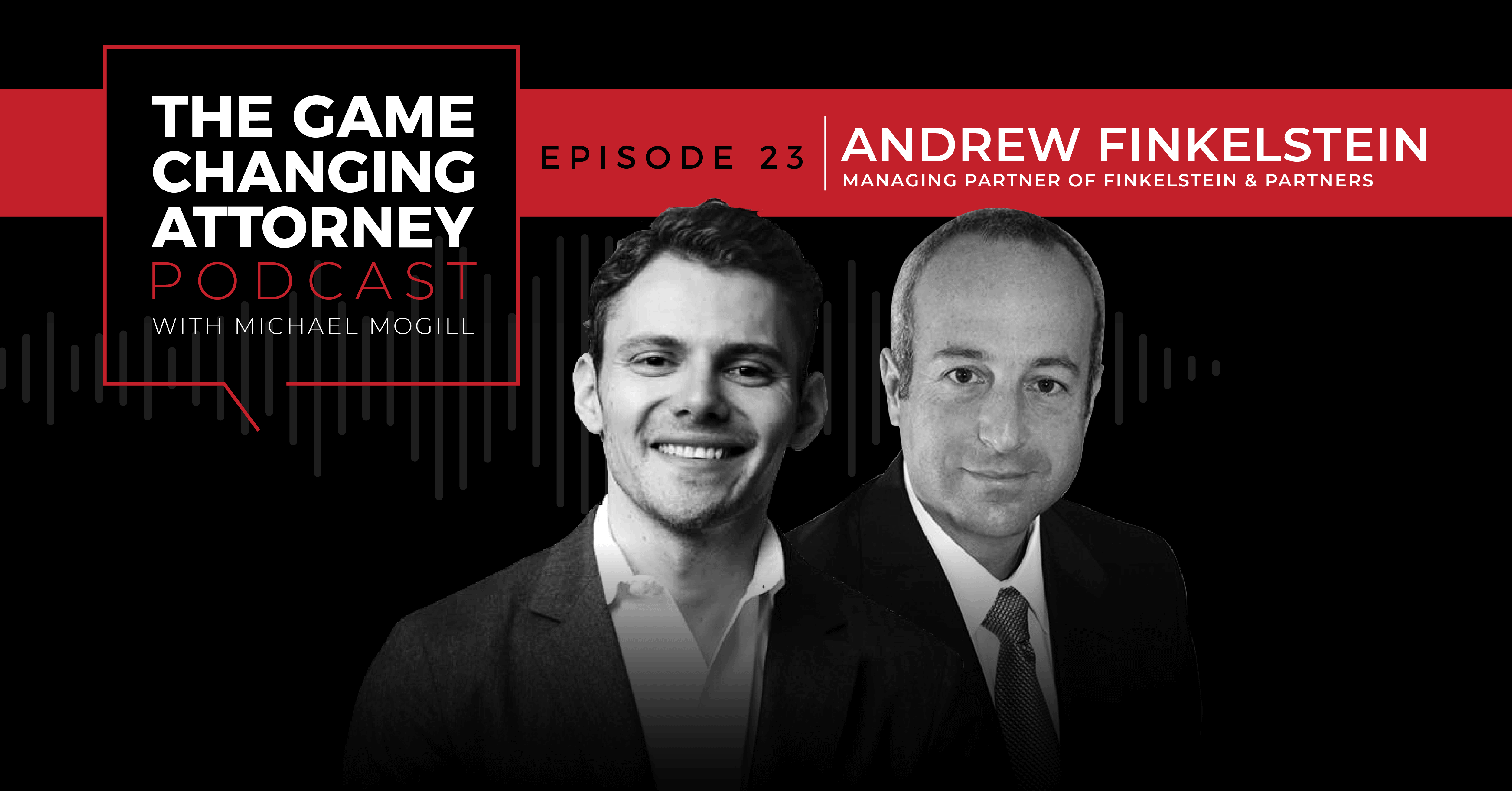
Listen & Subscribe
Show Notes:
3:19 – A businessman and attorney. “When I joined the firm, which was back in ‘91, there was one office, one location. And I viewed the office as a tremendous opportunity to really develop the business that I always wanted to create. I’ve always been an entrepreneur, and I viewed this opportunity as to build a law firm that had staying power, and I really thought about it critically from the business of law. And when I joined the firm, the day after I was admitted, I was picking my first jury. I went from trial to trial to trial to trial, took lots of lots of verdicts, but recognized that lots of lawyers take lots of verdicts. Not too many lawyers also go and get an MBA. So, I went and got an MBA while I was actually trying cases and used the program to workshop my law firm.”
5:33 – The power of technology. “From the time I joined the firm, I viewed our business as a software company that happened to practice law. And that is what enabled us, and we invested. At that time we had 15 programmers. There was no iPhone. There were no apps. There was no accounting software. We had to build everything. And the technology is what enabled us to develop and grow to what we have become, focusing on the client centric approach.”
6:30 – A focus on client experience. “We put our clients first. It’s easy to say client centric and we put our client first, but we measure that. And it’s really important to look at every interaction from the point of view of the client — not the lawyer’s point of view — and we talk about that all the time. We make sure that our communications are from a client’s perspective and recognize what it is that clients want when they hire us. What is it that they are truly trying to accomplish? It’s different from what the lawyer is trying to accomplish. And if we can do both, deliver to the client what they’re expecting while delivering great legal services, then we’ve accomplished it.”
14:27 – Creating an ideal workplace. “The core purpose of the firm is about taking care of one another. And we are about compassion, care, and concern for our clients and colleagues in our community. We don’t just say it — we live it. We recognize that every single day we have to come in and work. And the reality is that work is a four letter word. No matter how much we enjoy work, everybody would rather be doing something else. We recognize that, and we do our best to make it as pleasurable as possible by putting our staff first.”
15:47 – Defining success. “Success is an individualized perception. You can take the exact same set of facts; one person perceives it as success and the other person perceives it as failure, but it’s the exact same set of facts. And to me, the success that one would have is how they view themselves. Did they do everything that they thought was appropriate in all of the situations and the way they treated other people, the way they treated themselves, and how they feel about the particular circumstances that they’re in? To me, success is about being centered and down-to-earth, and treating people with dignity and getting that same thing in return. I don’t measure success through numbers. I measure success through having a loving family and knowing how the people I care about the most feel about me and I feel about them.”
19:20 – The failed firm merge. “Very simple. That checked off all the boxes of: Did it have an opportunity? Did it have the existing inventory? Was it strong enough to carry it through the transition period? Was it an organization that had an opportunity to produce more business? Yes. And culturally did it meet with our culture? The answer was yes. However, it turned out to be wrong and that completely failed solely because of culture. Once the integration was made, there were culture conflicts that were not acceptable, and it just failed. Frankly, everybody who joined left intentionally.”
21:32 – Feedback is vital. “One of them would be surveys: getting the feedback and surveys asking clients how they feel, but also my staff. I survey my staff as to how I’m doing and make sure it’s anonymous so that people can be truthful. It is humbling to hear some of the comments that come back, but it also stings a bit. But it’s good to hear that, to recognize that there is always room for improvement on that interpersonal component of treating one another. So, on a human factor, it’s getting feedback with surveys. That’s a key decision that has had a great impact on my success.”
24:53 – No fear of failure. “Nothing beats hard work. Nothing beats putting the time and energy in to invest in yourself. And you don’t have to tell anyone, ‘Look at what I’m doing,’ because it will show. It will show in the competence with which you carry yourself, the way you present your arguments, and the way that you attack things. If you choose to work hard and recognize that not everything will be successful, then you should be respected by your colleagues, and I’m fortunate that that’s what happened with me, but I never doubted my ability to do that. I always, always worked. And the reason why I never doubted my abilities to do that is, I really don’t care about failure. I view failure as such a positive thing because of what you learn from it. So, I never expected to do everything right, but I knew that the second time around, I would get it right.”
26:51 – The reason leaders fail. “Lack of alignment. Lack of alignment between what the partners’ or the founders’ goals are, with their staff. That’s when failures happen. It may sound simple — what’s an alignment? Well, what is our true objective here? Is it to work until I retire, or is it to create an organization that can stand on its own, without my personal involvement? It is the latter. And in order for that to happen, it requires everybody to be aligned with their personal responsibilities; they can’t be dependent upon a few people to carry the organization. Everybody has to have their oar in the water rowing in the same direction. When that doesn’t happen, that’s when I’ve seen organizations fail.”
29:50 – Overcoming procrastination. “It’s really important to just dive in and get it done — that sense of accomplishment of doing the hardest thing in your day first. You avoid that procrastination. It also works with relationships, whether it’s an employer-employee relationship, colleagues, or family relationship with a loved one. The difficult conversations are often the ones that get pushed aside. ‘Oh, I’ll address that later. I’ll talk about that later.’ But that weighs on you. And if you learn to address things right away, just hit it head on, and then move forward and put it behind you and not dwell on it — it’s yesterday’s news at that point in time. You’re no longer procrastinating, and you’re now productive.”
32:37 – Always room for improvement. “If anybody says, ‘What do you do?’ Nobody says, ‘I’m a perfect lawyer.’ They say, ‘I practice law.’ It’s the practice of law, not the perfection of law, and practice means practice. When you practice something, you have to first recognize you’re not perfect. You can always improve, and the only way that you can improve is by continuously reading, experiencing new things, and getting better as often as you can.”
35:37 – No shame in asking for help. “Don’t hesitate to ask. I asked for cases all the time. I still do. I always do. They don’t know if you want to do business with them unless you tell them. So I just tell people, ‘I would love the opportunity to work for you. I would love the opportunity to prove to you why I think my firm is the best. If you give me that opportunity, I won’t disappoint you.’ I don’t hesitate to ask my existing and prior clients, and I tell them exactly this. I say, ‘You know, I really appreciate the trust and confidence that you’ve put in me and my firm. If there’s ever an issue, please let me know, but equally as important, I’m going to ask you to share that information if we’ve done a good job. The way I can continue doing this is if you share that with your friends and family. And if there’s anybody that you think I can help, don’t hesitate. Would you do that for me? Would you help me that way?’ People are happy to. But if you don’t ask, they don’t do it.”
38:58 – The future of the legal industry. “I think we are in competition with Google, Amazon, and Apple. If we are not at their levels of service, then we have challenges. We’re going to be measured against that. So the law firm of the future is a law firm that can deliver those services in a streamlined way that enables their clients to get the information in an easy format and get right to the bottom line.”
40:50 – You must specialize. “Specialize. I would definitely recommend picking a practice area. Frankly, like my firm, we have built it to have sub-specialists within my firm, but the consumer doesn’t understand that when they hire us. So I would specialize. I would want to become the owner of a particular space, whether it’s nursing homes, motorcycles, or tractor trailers. That’s not to say you won’t do other work, but the way you want to compete is through specialization. If you look across industries, that’s how it happens. I can take you through lots of different industries, like banking, right? You have the big banks — JP Morgan, Chase — but there’s still thousands of smaller community banks. What do they do? Well, each one differentiates themselves.The ones who are smart specialize in a particular vertical in the banking world. You can’t be everything. So, if I was involved in a smaller firm, I would be picking a specialty or two and trying to own that.”
42:25 – What does being a game changer mean to you? “Hard work. Forward looking. If I was to distill it down to one thing, and I’m going to say the same thing in two different ways, it is never looking back — always looking forward. We’re always in three different timeframes in our mind. We’re either thinking about the past, the present, or the future. Most people rarely are in the present. They are always thinking backwards or thinking forwards. Well, if you recognize that you’re thinking backwards, if you’re having negative thoughts about ‘what if?’ That’s a bad place to be living. I personally always live in the future. I’m always thinking 10 years out. I’ve got a big flag 10 years down the road, so it’s about figuring out what the path is to get there and taking it slowly. I really don’t live in the past, and to me, a game changing attorney is just that — somebody who’s changing the game, going forward, and not dwelling on the past.”
EPISODE RESOURCES
Jacoby & Meyers
Google
Apple
Amazon
JP Morgan
Chase Bank
Connect with Michael
- Text directly at 404-531-7691
